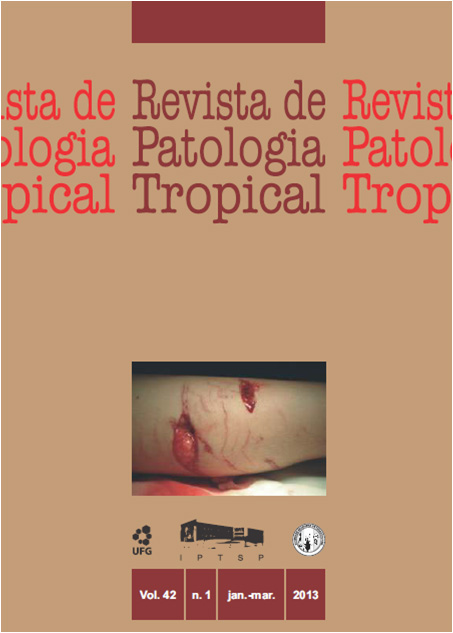USING CAPTIVE SENTINELS TO COLLECT WILD TRIATOMINES IN THE REGION OF MARÍLIA-SP, BRAZIL
DOI:
https://doi.org/10.5216/rpt.v42i1.23596Keywords:
Trypanosoma cruzi, Wild triatomines, Pyrethroid, Captive sentinel, Diaphorina citri.Abstract
In order to collect wild triatomines in the municipality of Marilia, two captive sentinel sites were installed in a remnant riparian zone in the Atlantic Forest comprising 34 hectares located on the Nossa Senhora Aparecida farm. One enclosure was built on the margin and another inside the forest, about 200 meters from the edge, using rabbits as bait to attract wild triatomines. In addition to the caged rabbits, active searches for triatomines were performed in tree holes, bird nests and armadillo burrows by spraying Pirisa 1080-L1E1 aerosol dislodger. The sentinels were maintained for one year and four months. During this period six active searches were performed, but without success in attracting or colonizing wild triatomines. One factor that has probably intervened in the triatomine colonization is the periodic application of insecticides formulated with pyrethroid in farms neighboring the forest to fight Diaphorina citri in orange plantations.Downloads
Downloads
How to Cite
Issue
Section
License
The manuscript submission must be accompanied by a letter signed by all authors stating the full name and email address, confirming that the material has not been published or is under consideration for publication elsewhere, and agreeing to transfer copyright in all media and formats for Journal of Tropical Pathology. The authors will not be paid for published articles. They are solely responsible for the content of those articles, even if the Editor holds the right to adjust them to the norms of the journal.
The reviewers will not be paid for the peer review process.

